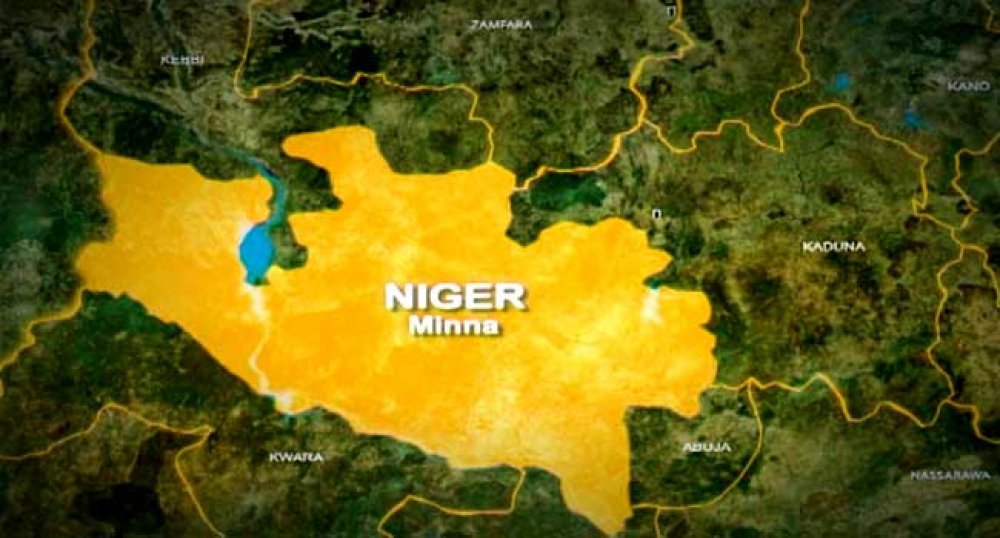 •49 killed, 41,344 displaced, 16,488 hectares of farmlands damaged
•49 killed, 41,344 displaced, 16,488 hectares of farmlands damaged
• Relocate, Adamawa govt warns residents in flood-prone areas
• Speaker Abbas seeks aid for Kaduna victims
The federal government said it plans to increase food production through dry-season farming to mitigate losses recorded after floods ravaged parts of the North-East.
The move came as recent statistics show that the prospects of sufficient food production could be jeopardised unless the government intervenes.
The National Emergency Management Agency (NEMA) said at least 49 people have died in floods in the region.
The federal government disclosed that 148 local councils in 31 states were at risk of severe flooding between April and November 2024.
It added that 249 local councils in 36 states, including the Federal Capital Territory (FCT), fall within the “moderate flood risk states”.
NEMA spokesperson Manzo Ezekiel said 41,344 people have been displaced by flooding in Jigawa, Adamawa, and Taraba states and that floods caused by heavy rains have destroyed more than 693 hectares of farmlands in the region.
“We are just entering the peak of the season, particularly in the northern part of the country, and the situation is very dire,” Ezekiel said.
“We also have information about the high tide in the upper countries of the River Niger before Nigeria. All of these are flowing towards Nigeria. We are beginning to see a manifestation of our predictions.”
On August 15, NEMA said flooding had affected 227,494 people and damaged 32,837 houses in 27 states.
The agency added that flood disasters damaged 16,488 hectares of farmlands.
Also, the Nigeria Security and Civil Defence Corps (NSCDC) disclosed that about 100 families were displaced by flooding in Gantsa, Buji Local Council of Jigawa.
The State Emergency Management Agency (SEMA) said at least 16 persons lost their lives and 3,936 were displaced in 10 local councils of the state.
HOWEVER, the Minister of Agriculture and Food Security, Abubakar Kyari, hoped that the situation would have minimal effect on national food security as the government intends to embark on dry season farming in 2024/2025 to make up for upsets caused by the flooding.
In a tweet posted on his X handle, Kyari described the development as worrisome and admitted it will hurt rural farmers’ social and economic well-being, especially small-scale farmers.
“We have already constituted a committee between the staff of the two ministries and key players working on achieving the objectives of increasing food production through dry season farming.”
The other ministry involved is Water Resources and Sanitation, headed by Joseph Utsev.
Kyari added that President Bola Tinubu has encouraged his cabinet to invest in technologies and practices that empower farmers to adapt to a changing climate to safeguard livelihoods against unpredictable weather patterns.
He noted that by embracing smart agriculture and harnessing the potential of early maturing seeds, the country could pave the way for a more sustainable and secure future for the agricultural sector.
He urged citizens to join in solidarity with farmers, states, and local councils to offer more support and resources to those who toil tirelessly to feed the nation.
“Together, we will weather this storm, and together, we will emerge stronger, united in our commitment to stand with our farmers today and always,” Kyari said.
He also sympathised with affected farmers, saying: “As we witness the devastation caused by the recent flooding in our agricultural heartlands, my thoughts turn to the hardworking farmers whose livelihoods have been swept away by the unforgiving forces of nature.”
KYARI’S reaction came as the Adamawa State Government advised residents living in flood-prone areas to relocate to higher ground to avoid flooding that could result in loss of life and property.
The Executive Secretary of the Adamawa State Emergency Management Agency (ADSEMA), Celine Laori, advised in an interview with the News Agency of Nigeria (NAN) in Yola yesterday.
She described the recent flooding in the three local councils of Madagali, Demsa, and Numan as devastating, stressing that it was a warning to residents in low-lying areas.
Laori said the flood affected 21 communities, resulted in six fatalities, and displaced more than 12,961 people.
“The flood was devastating, affecting people’s livelihoods, destroying bridges, houses, shops, healthcare facilities, schools, and farmlands. In Madagali alone, the flood affected over 10,264 individuals across 11 communities, with victims currently taking shelter in nine camps.
“In Numan, it affected about 1,113 people and displaced 206 people in five communities, with the displaced persons in two camps. In Demsa, it affected 1,584 people in five communities,” she said.
Laori further said the government immediately provided the victims with relief items, including rice, maize, vegetable oil, mattresses, blankets, hygiene kits, and clothing for adults and children.
MEANWHILE, the Speaker of the House of Representatives, Tajudeen Abbas, expressed deep concern over the recent flooding in Sabon Gari Local Council of Kaduna State.
He described the incident as a tragedy.
Heavy rainfall triggered the flood on Monday in the Kogin Mata and Tudun Muntsira, Chikaji areas of Sabon Gari.
The deluge caused significant property damage and displaced numerous residents.
In a statement by his media aide, Musa Krishi, yesterday, Abbas sympathised with the victims and expressed sorrow that such a devastating event struck when people were striving to sustain their livelihoods.
He called for urgent intervention to relieve the affected and urged residents to remain calm as the government works to alleviate their suffering.
The Speaker appealed to the national and state emergency management agencies to swiftly assist the victims.
He further advised residents in the areas to take precautionary measures and follow guidance from relevant authorities.
RELATEDLY, the government said yesterday that more than 31.8 million Nigerians are acutely short of food due to security challenges and the removal of fuel subsidies, citing a study by several of the country’s international development partners.
The Ministry of Budget and Economic Planning said in a statement that the partners set out the scale of the shortage, which has led to malnutrition among women and children, at a meeting with the government.
The findings indicate a sharp rise from the 18.6 million people assessed as vulnerable to acute food insecurity by the U.N. World Food Programme from October to December 2023.
“The surge in food commodity prices, which is a result of the removal of fuel subsidy in addition to security challenges, has placed millions of Nigerians in a precarious situation,” the ministry said.
Raids by bandits wielding guns and machetes have forced many farmers to leave their fields, contributing to higher food prices and soaring inflation as Nigeria faces the worst cost of living crisis in a generation.
President Bola Tinubu, who took office in May 2023, removed fuel subsidies to reduce government spending, which raised the cost of transportation.
The development partners who produced the study included the U.N. Food and Agriculture Organisation, the Global Alliance for Improved Nutrition and the German Development Agency GIZ.






